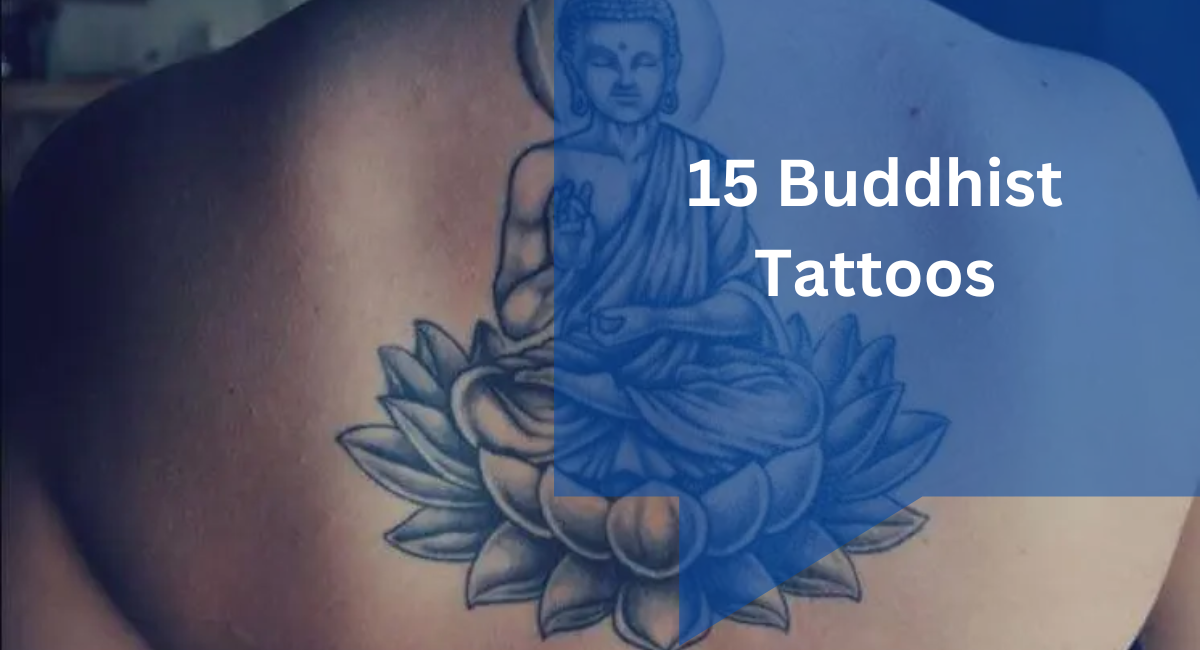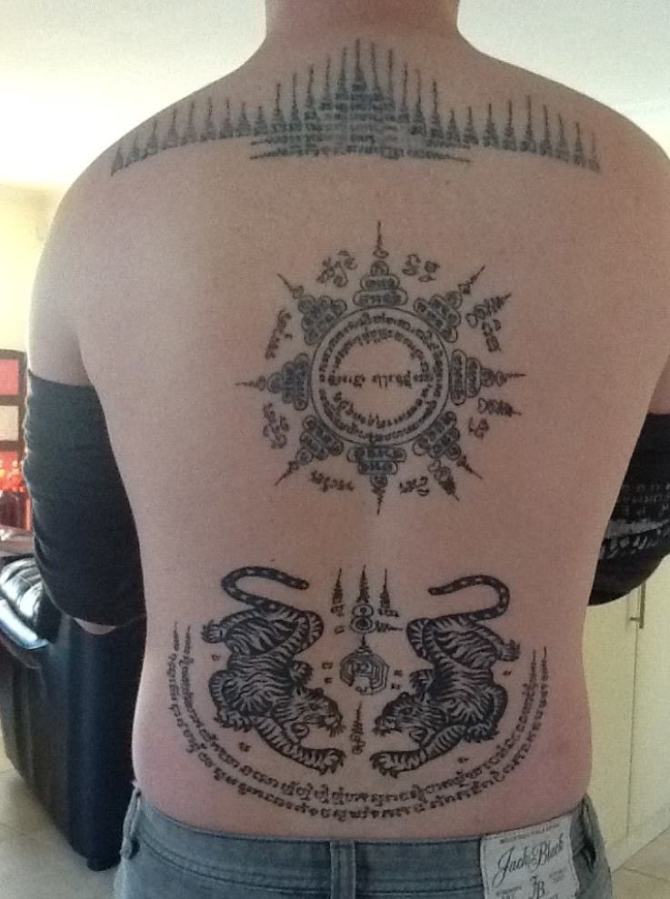Tattoos, once relegated to the fringes of society, have become a mainstream form of self-expression. Today, intricate designs adorn bodies across cultures and demographics. But some imagery transcends mere aesthetics, carrying deeper philosophical and spiritual significance. Buddhist tattoos are prime examples of this phenomenon.
Traditionally, Buddhism, with its emphasis on impermanence, hasn’t embraced permanent body modifications. However, in recent decades, a fascinating trend has emerged – the rise of Buddhist tattoos.
This article explores the evolution of Buddhist tattoos, delving into their symbolism, motivations behind getting them, and the cultural shift that has made them more widely accepted.
From Ancient Roots to Modern Interpretations
The association between Buddhism and body art has a long, albeit complex, history. Ancient Southeast Asian cultures, heavily influenced by Buddhism, incorporated spiritual imagery into tattoos. These tattoos served as protective talismans, markers of social status, or representations of spiritual devotion.
Fast forward to the 20th and 21st centuries, and a new wave of Buddhist tattoos has emerged. This trend is fueled by several factors:
- Global interconnectedness: The spread of Buddhist teachings and practices worldwide has exposed a wider audience to Buddhist symbolism.
- Individualism and self-expression: Tattoos provide a powerful way for people to connect with their spirituality and express their beliefs in a personal and unique way.
- Aesthetic appeal: Buddhist iconography, with its intricate mandalas, serene Buddhas, and lotus flowers, offers a visually stunning canvas for tattoo artists.
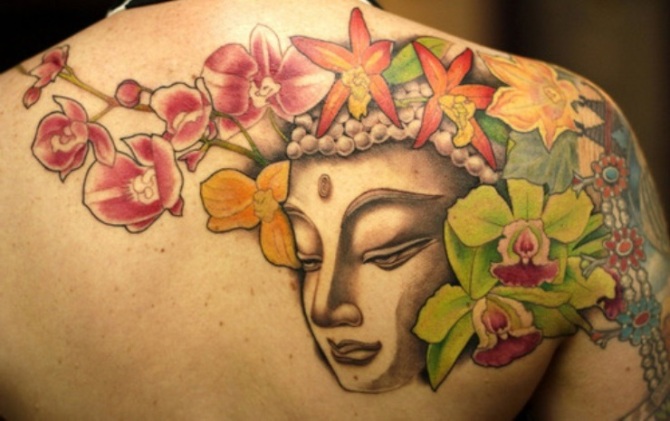
Popular Buddhist Tattoo Motifs
The vast spectrum of Buddhist teachings finds expression in a diverse range of tattoo motifs. Here are some of the most common ones and their meanings:
- The Buddha: A representation of the historical Buddha, Siddhartha Gautama, symbolizes enlightenment, peace, and the potential for awakening that exists within all beings.
- Lotus Flower: A symbol of purity, spiritual growth, and overcoming challenges. The lotus flower rises from muddy water, representing the potential for enlightenment even amidst suffering.
- Dharma Wheel (Dharmachakra): This eight-spoked wheel represents the Buddha’s teachings, the Eightfold Path, which guides one towards liberation from suffering.
- Mandalas: These intricate circular patterns symbolize the universe, the interconnectedness of all things, and the path to enlightenment.
- Protective Symbols: Certain symbols, like Yantra designs, are believed to offer protection from harm and negative energies.
These are just a few examples, and the choice of motif is deeply personal. Some individuals choose iconography that resonates with their specific Buddhist tradition (Theravada, Mahayana, Zen, etc.), while others opt for more abstract representations of Buddhist concepts.
Motivations for Getting Buddhist Tattoos
People choose Buddhist tattoos for a variety of reasons. Here are some of the most common:
- Spiritual Connection: For many, Buddhist tattoos serve as a constant reminder of their spiritual path and a source of inspiration and comfort.
- Personal Transformation: The act of getting a tattoo can be a symbolic representation of personal growth and commitment to Buddhist teachings.
- Cultural Identity: For those from Buddhist cultures, tattoos can be a way to connect with their heritage and express their cultural identity.
- Aesthetic Appreciation: Some individuals simply appreciate the beauty and symbolism of Buddhist iconography and choose it for its aesthetic appeal.
It’s important to note that not all Buddhist tattoos represent a deep spiritual commitment. For some, they might be a more casual expression of interest in Buddhist philosophy or simply a visually appealing design.
Buddhist Tattoos and Cultural Acceptance
Traditionally, Buddhist teachings haven’t explicitly endorsed tattoos. However, as Buddhism has spread and adapted to different cultures, attitudes towards body art have begun to shift.
Several factors contribute to this growing acceptance:
- Secularization of Buddhism: In Western contexts, Buddhism is often practiced in a more secular way, with less emphasis on strict adherence to traditional rules.
- Normalization of Tattoos: In many societies, tattoos are no longer viewed negatively and are seen as a form of self-expression.
- Respectful Representation: When Buddhist symbols are portrayed respectfully and with an understanding of their meaning, they are generally viewed favorably by Buddhist communities
Buddhist Hand Tattoo
A Buddhist Hand Tattoo embodies spiritual significance, often featuring mudras (hand gestures) representing various aspects of Buddhist teachings such as compassion, wisdom, or enlightenment.
These tattoos serve as a constant reminder of the principles and values of Buddhism, guiding the wearer towards mindfulness and inner peace in their daily lives.
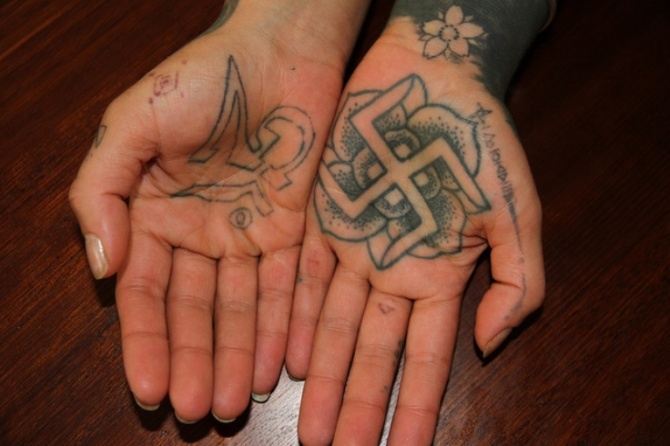
Buddhist Lotus Flower Tattoo
The Buddhist Lotus Flower Tattoo embodies profound spiritual symbolism. The lotus, emerging from murky waters to blossom into a pristine bloom, represents enlightenment and purity in Buddhist philosophy.
Its unfolding petals symbolize spiritual growth and the journey towards enlightenment, making it a revered choice for those seeking inner peace and transcendence through body art.
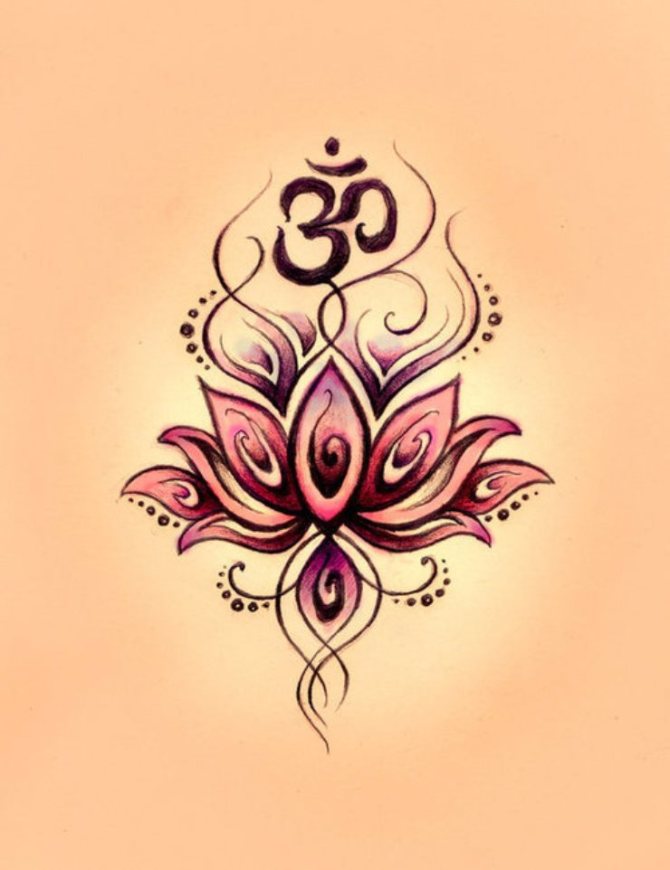
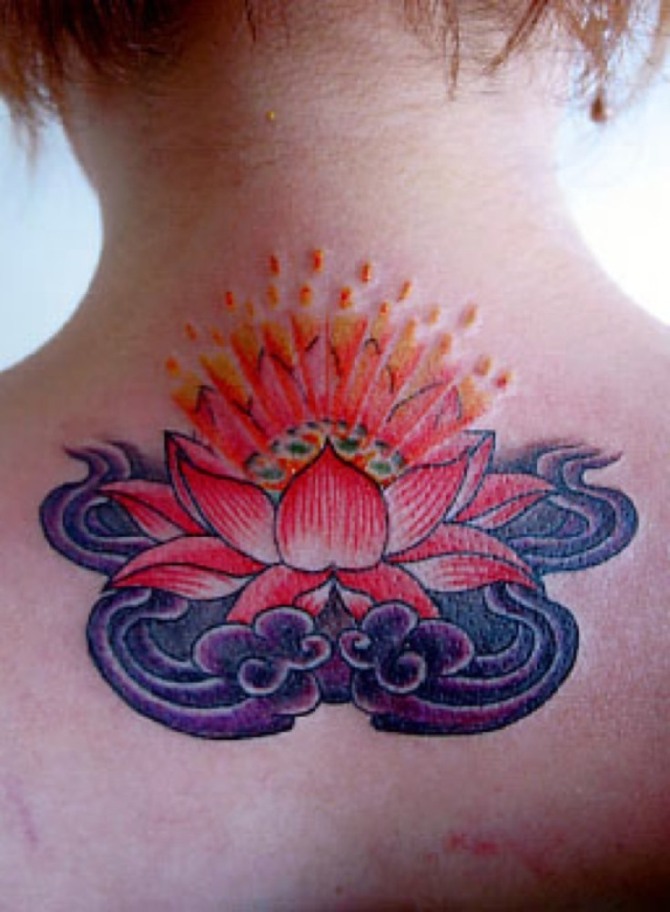
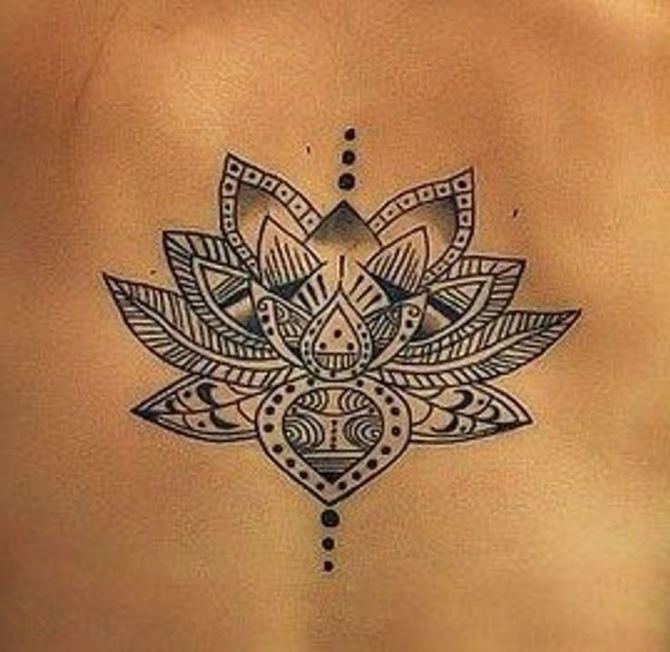
Buddhist Mandala Tattoo
A Buddhist Mandala Tattoo embodies intricate spirituality, reflecting the universe’s harmony and impermanence. Its circular design represents the cosmos, while intricate patterns symbolize enlightenment’s path.
Each element holds significance, from the central deity to surrounding symbols of wisdom and compassion. Beyond mere body art, it’s a sacred emblem inviting inner peace and mindfulness.
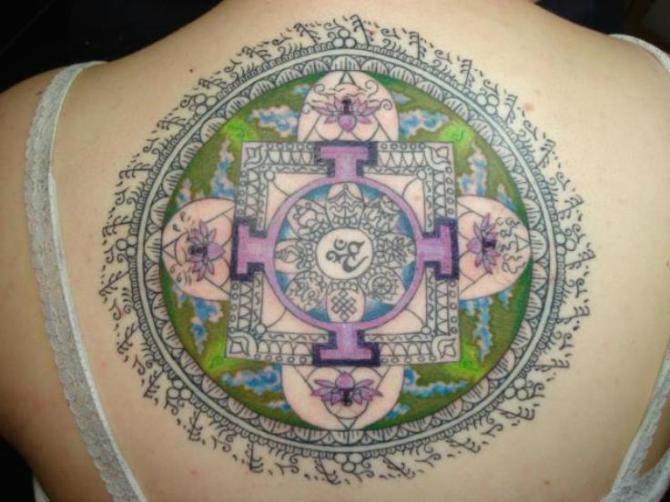
Buddhist Monk Tattoo
A Buddhist Monk tattoo embodies spiritual devotion, inner peace, and enlightenment. It often features intricate designs of Buddhist symbols such as the Dharma wheel, lotus flower, or the image of a meditating monk.
This tattoo represents a deep connection to Buddhist teachings, mindfulness, and the journey towards self-discovery and transcendence.
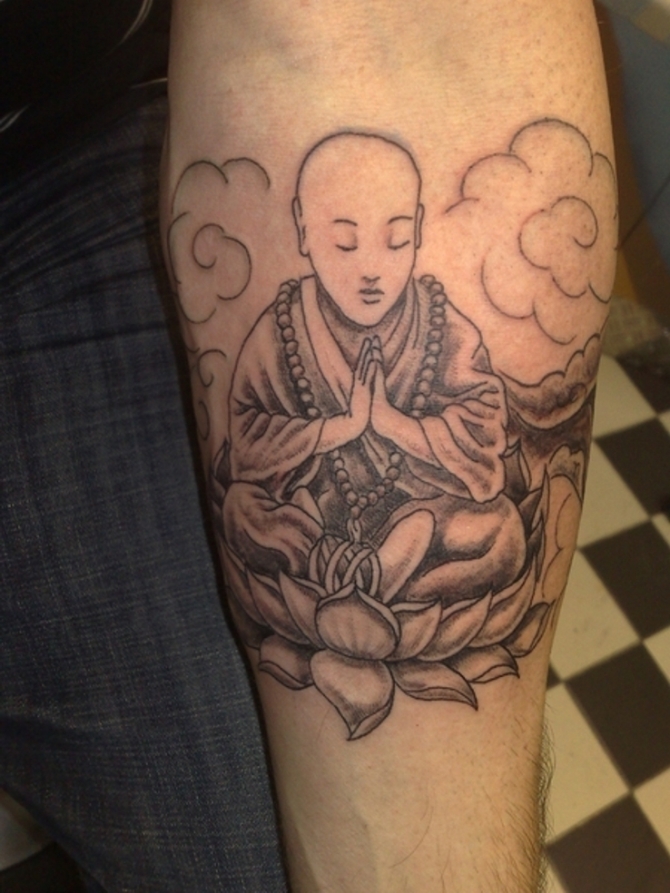
Buddhist Symbols Tattoo
Buddhist symbols tattoos carry deep spiritual meanings, reflecting key tenets of Buddhism. The lotus symbolizes purity and enlightenment, while the dharma wheel represents the path to liberation.
The endless knot symbolizes interconnectedness and unity, while the Om symbolizes the essence of the universe. Each tattoo serves as a reminder of Buddhist principles and the journey towards inner peace.
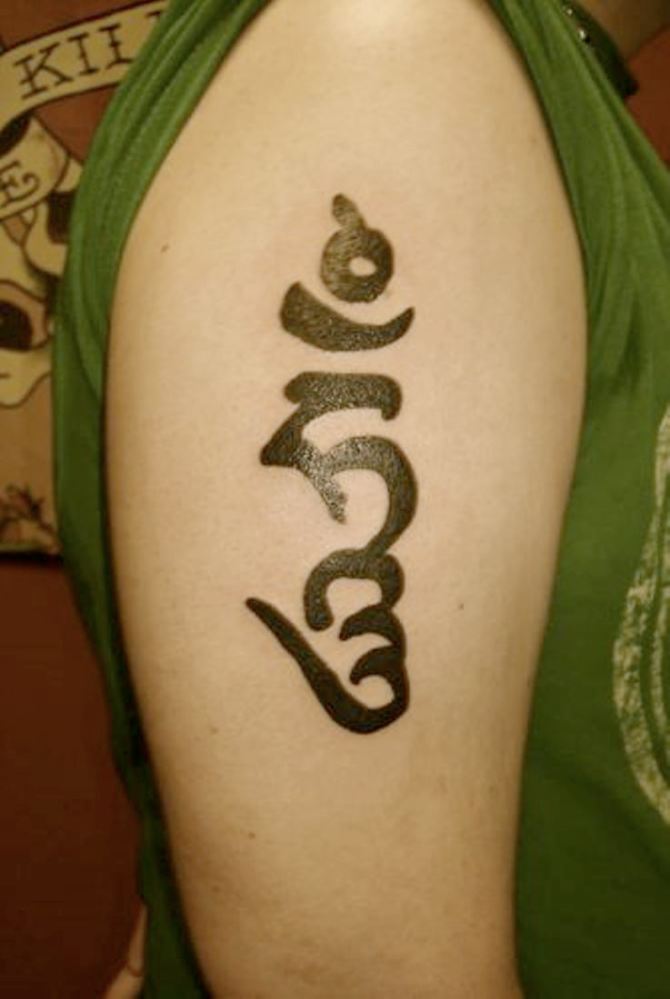
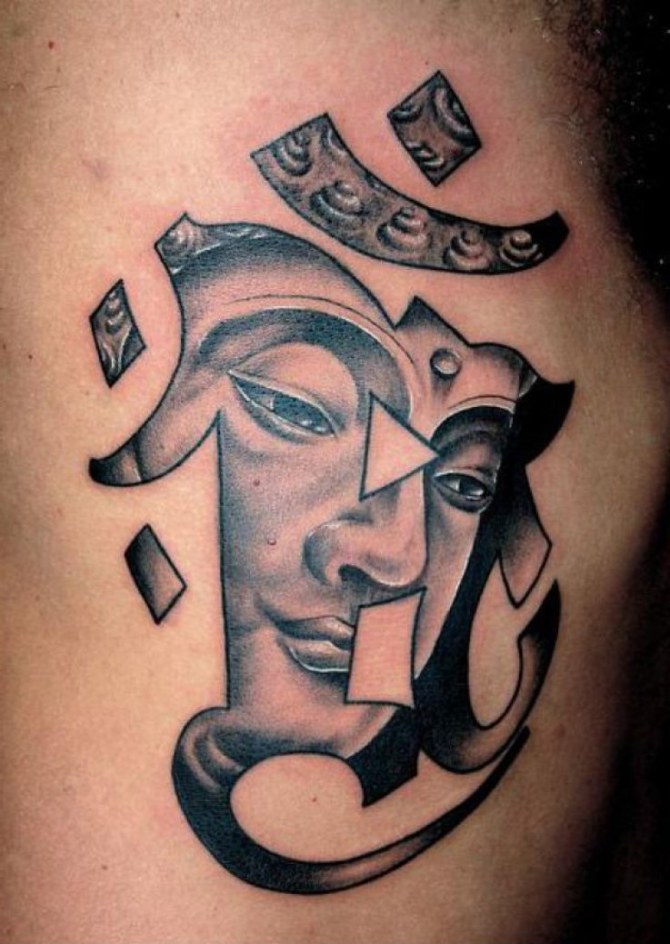
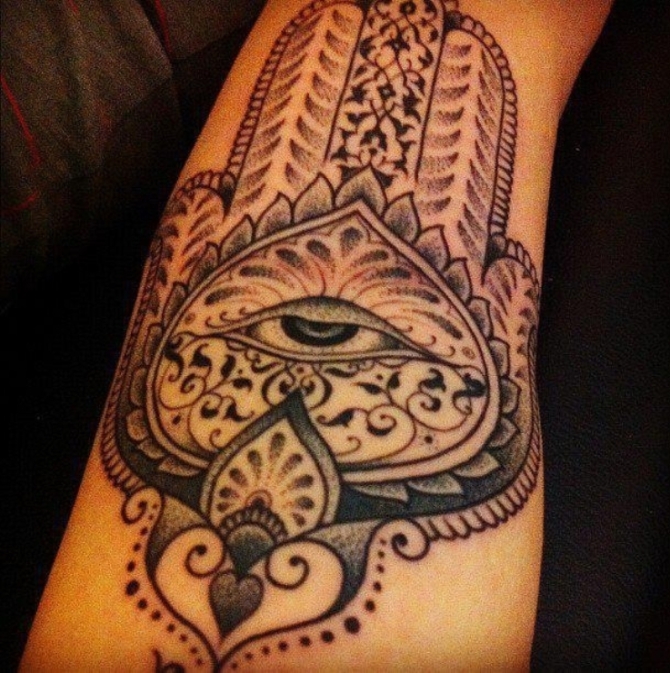
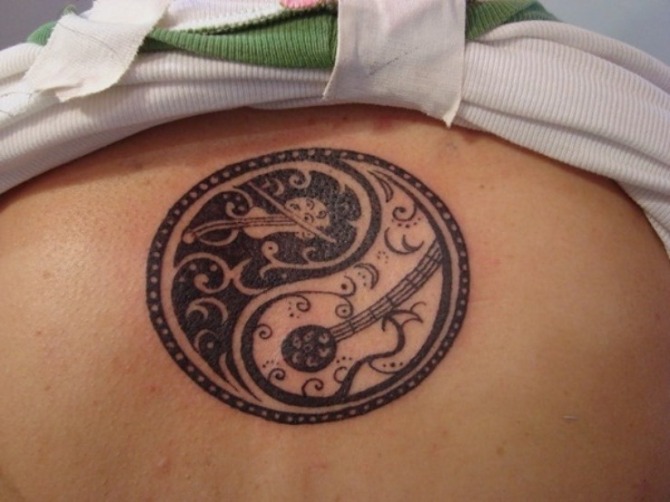
Buddha Tattoo
A Buddha tattoo embodies tranquility, enlightenment, and inner peace. It serves as a reminder to strive for mindfulness and compassion in one’s daily life.
Different designs, such as the meditating Buddha or the Buddha’s serene smile, convey various aspects of Buddhist teachings, offering a personal connection to spirituality and self-discovery.
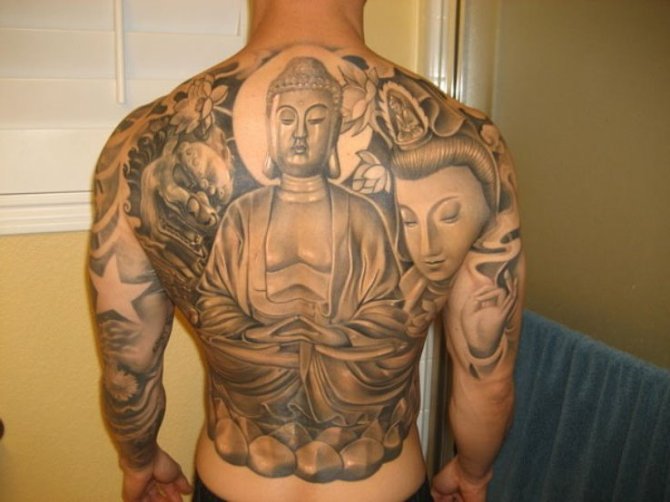
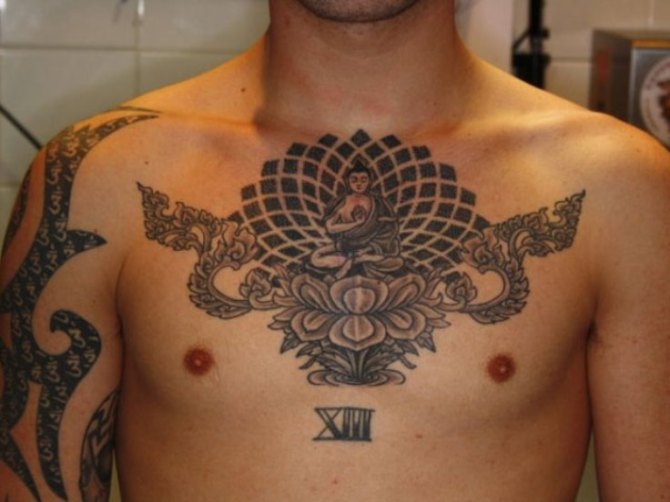
Conclusion
In conclusion, the profound symbolism and spiritual significance embedded in Buddhist tattoos render them not merely ink on skin but a visual manifestation of personal beliefs and values.
As individuals choose designs that resonate with their unique spiritual journey, Buddhist tattoos become a deeply personal and introspective art form. The intricate imagery, often drawn from Buddhist teachings and cultural elements, transforms the body into a canvas of spiritual expression.
Whether it’s the serene visage of Buddha, the sacred lotus, or the enigmatic mandalas, each inked motif carries a narrative that transcends the physical realm. Embracing Buddhist tattoos extends beyond the aesthetic, fostering a connection to one’s spirituality and the broader tapestry of human experience.
As individuals continue to seek solace and meaning in their inked expressions, Buddhist tattoos stand as timeless symbols of enlightenment, mindfulness, and a profound connection to the spiritual journey.
Frequently Asked Questions
Which symbol is best for Buddhist tattoo?
The choice of the best symbol for a Buddhist tattoo is subjective and depends on personal preferences. Common symbols include the Lotus flower, Dharma wheel, and the Buddha himself.
Is Buddha tattoo good luck?
In Buddhist belief, a Buddha tattoo is not necessarily associated with luck. The emphasis lies more on spiritual enlightenment, mindfulness, and the embodiment of Buddhist teachings.
What do tattoos symbolize in Buddhism?
Tattoos in Buddhism often symbolize spiritual devotion, personal beliefs, and a commitment to the principles of Buddhism. They serve as visual expressions of one’s spiritual journey and can incorporate various symbols with specific meanings.
To know more about tattoos and get inspired to ink , you may visit these blogs Lily Flower Tattoos, 42 Best Jaguar Tattoos Ideas, 30 Best Sleeve Tattoo Ideas for Men and 50+ Best Dog Tattoo Ideas
Daniel Stewart is a renowned tattoo design expert With years of experience in the industry, Daniel is known for his creativity and attention to detail. Through this platform, he shares valuable insights, tips, and inspiration for both aspiring tattoo artists and enthusiasts. Daniel's expertise spans various styles, from intricate geometric patterns to vibrant watercolor designs. His dedication to personalized and meaningful tattoos sets him apart in the industry.
